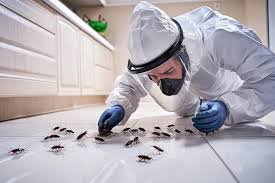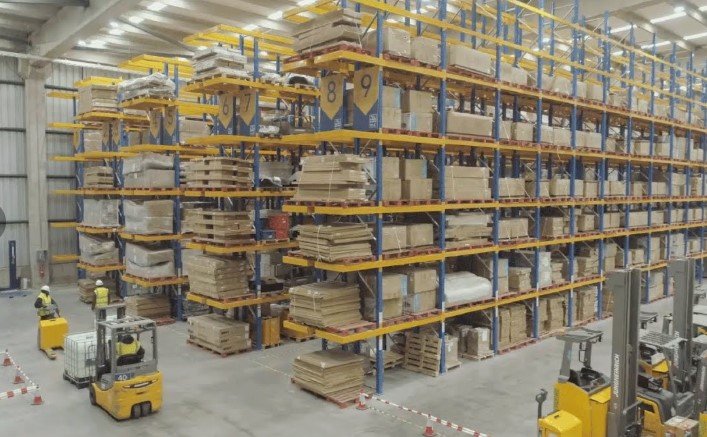Introduction
Pest control plays a crucial role in keeping our homes, workplaces, and communities clean, safe, and comfortable. The field itself is more complex than many realize and requires an understanding of various techniques, types of pests, and environmental factors. In recent years, the demand for pest control experts has grown due to an increase in awareness around health and hygiene, making pest control a stable and rewarding career choice for many people.
This article will provide a clear and simple guide to understanding the essentials of pest control, including the different classes or categories within the field, skills required, and how to get started. Whether you’re curious about pest control for personal knowledge or interested in taking it up as a profession, this guide covers all you need to know.
1. Why Pest Control Matters
Pests are not just annoying creatures that invade our spaces; they can also carry diseases, contaminate food, and cause structural damage to buildings. Common pests like rodents, insects, and termites can quickly become a major problem if not properly managed. Effective pest control is essential for:
- Public Health: Many pests spread harmful bacteria and viruses. Mosquitoes, for example, can carry diseases like malaria and West Nile virus, while cockroaches can trigger asthma and allergies.
- Food Safety: Pests such as rats, flies, and ants can contaminate food and food preparation areas, risking food poisoning and other health issues.
- Property Protection: Termites and carpenter ants can damage wood structures in buildings, leading to costly repairs if left unchecked.
- Quality of Life: Pests cause discomfort and anxiety, especially in homes and places where people need to feel safe and secure.
Understanding the significance of pest control highlights why there’s a growing demand for trained individuals in this field.
2. Exploring the Different Areas of Pest Control
Pest control is a broad field, divided into different categories or “classes” based on the types of pests managed, methods used, and areas of specialization. Each class requires specific knowledge and skills, as well as compliance with safety standards and regulations.
Here’s an overview of the main types of pest control classes:
A. Residential Pest Control
This is one of the most common types of pest control, dealing with issues inside people’s homes or apartments. Professionals working in this area handle common household pests like ants, spiders, cockroaches, and rodents. Residential pest control is particularly focused on:
- Identifying pests and assessing infestations: Knowing how to spot pest activity and signs of infestation.
- Choosing safe and effective treatment methods: Ensuring the methods used do not harm residents, pets, or the home environment.
- Preventive measures: Advising homeowners on how to keep pests from returning, such as sealing entry points, reducing food sources, and maintaining a clean environment.
B. Commercial Pest Control
Commercial pest control focuses on managing pests in business establishments such as restaurants, hotels, offices, and retail spaces. Pest issues in these settings require prompt and effective solutions to avoid reputation damage, health risks, and business losses.
- Compliance with regulations: Commercial pest control professionals must adhere to health codes and industry standards.
- Customized treatment plans: Each commercial space has unique needs, so the pest control approach is tailored to the specific environment.
- Proactive monitoring: Regular inspections and preventative treatments are essential to keep commercial spaces pest-free.
C. Agricultural Pest Control
In agriculture, pests like insects, rodents, and fungi can destroy crops, impacting food supplies and the livelihood of farmers. Agricultural pest control is a specialized field requiring knowledge of pests that target specific plants, crop cycles, and environmentally friendly pest management methods.
- Integrated Pest Management (IPM): This approach combines biological, cultural, and chemical methods to manage pests with minimal environmental impact.
- Knowledge of pesticides and their application: Professionals must understand which chemicals are safe for crops, as well as when and how to apply them.
- Soil and crop health: Maintaining the overall health of crops and soil is essential for long-term pest control success in agriculture.
D. Industrial Pest Control
Industrial pest control is often required in large facilities, such as warehouses, manufacturing plants, and distribution centers. These settings can attract pests due to their large size, heavy traffic, and stored goods. The focus is on managing pests without disrupting daily operations.
- Advanced pest management strategies: Industrial pest control may involve the use of specialized equipment, such as traps, baits, and even automated monitoring devices.
- Safety protocols: Professionals in this area must follow strict guidelines to ensure the safety of workers, especially when using chemicals.
- Preventive maintenance: Routine inspections and targeted treatments help prevent infestations in industrial environments.
3. Skills and Knowledge Needed in Pest Control
Pest control professionals need a range of skills and knowledge to effectively manage infestations and work safely. Here are some of the most important areas of expertise:
A. Knowledge of Pest Biology
Understanding the biology and behavior of pests is fundamental in this field. Different pests have unique life cycles, habitats, and behaviors. For example, knowing that termites thrive in damp wood can help professionals identify areas at risk in a building.
B. Chemical Knowledge and Safe Application
Many pest control methods involve the use of pesticides. Professionals need to know how to use these substances safely, following the proper guidelines for application, handling, and disposal.
C. Problem-Solving Skills
Every pest infestation is different, requiring pest control specialists to assess the situation and find the most effective solution. This involves a combination of observation, analysis, and decision-making.
D. Communication Skills
Pest control professionals often work with clients to explain treatment plans, safety measures, and preventive actions. Clear communication helps build trust and ensures clients understand what to expect.
4. Pest Control Classes and Certification Requirements
Many pest control specialists choose to pursue certification to enhance their skills and demonstrate their qualifications. Certification requirements vary by region and may include classroom training, field experience, and passing a written exam.
A. Pest Control Licenses
In many places, pest control professionals need a license to work legally. Licensing ensures that they have received training in pesticide application, safety, and pest management techniques. Licensing requirements may include:
- Classroom training on pest management fundamentals
- Field training under supervision
- Passing a written and/or practical examination
B. Continuing Education
The pest control field is constantly evolving as new methods, products, and regulations emerge. Continuing education helps pest control experts stay up-to-date and maintain their certification or license.
5. How to Get Started in a Career in Pest Control
If you’re interested in a career in pest control, here’s a step-by-step guide to getting started:
- Research the Requirements: Check the licensing and certification requirements in your area.
- Take Training Courses: Many community colleges and trade schools offer pest control training programs that cover essential topics.
- Gain Experience: Entry-level jobs or apprenticeships can help you build hands-on skills and knowledge.
- Obtain Your License or Certification: After completing training, apply for the necessary certification or license to work professionally.
- Stay Informed: Consider joining industry associations or subscribing to publications to keep up with industry trends.
6. Future Opportunities in Pest Control
The pest control field offers diverse career paths, and with growing awareness around health and sustainability, demand is likely to increase. Specialists in areas like eco-friendly pest control, advanced monitoring systems, and urban pest management are especially in demand. With experience, you may even consider starting your own pest control business, providing services to residential, commercial, or agricultural clients.
Conclusion
Pest control is a field that combines science, problem-solving, and public service, making it both challenging and rewarding. From managing common household pests to tackling complex infestations in industrial settings, pest control professionals play an important role in safeguarding health, food supplies, and property. For those interested in a practical, impactful career, pest control offers many paths to explore, each with its own specialized training and skills.
By understanding the pest control classes available and the steps needed to enter the field, you can make an informed decision on whether this line of work aligns with your career goals and interests. Whether you’re looking to protect your own home from pests or want to help others do the same, the knowledge and skills gained in pest control are invaluable.












Leave a Reply